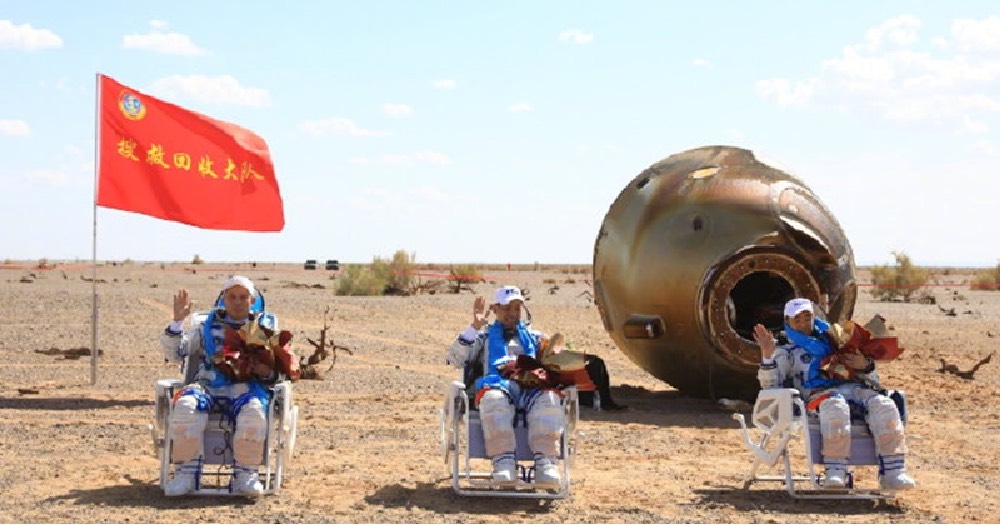Follow us on Telegram for the latest updates: https://t.me/mothershipsg
After spending 90 days in space, three Chinese astronauts from the "Shenzhou-12" mission have returned to Earth on Sep. 17, in China's first crewed mission since 2016, Reuters reported.
The three astronauts, Nie Haisheng, Liu Boming and Tang Hongbo, landed in China's Inner Mongolia Autonomous Region in a return capsule, and marked the "successful conclusion" of their mission, Chinese state-controlled media Global Times (GT) reported.
Construction in progress
The astronauts were on a mission to help assemble China's first permanent space station. The mission is the first of four crewed endeavours planned for 2021 and 2022.
According to Reuters, the launch of the "Tianhe module" in April marked the beginning of the space station's construction. The entire process requires 11 missions, including the launch of the station's three modules.
The "Tianhe module" will reportedly be designated as the living quarters of the space station in the future.
The three astronauts, Nie, Liu and Tang, reportedly stayed in the "Tianhe module" -- which is slightly larger than a city bus -- since the beginning of their mission in mid-June.
Next batch of astronauts will spend double the time in space
The astronauts carried out a few tasks while in orbit, including conducting spacewalks, validating the life-support system on "Tianhe", and organising supplies for upcoming crewed missions, Al-Jazeera reported.
The next batch of astronauts is reportedly expected to stay in space for six months, and their mission is scheduled for October.
Supplies for the next mission will be launched into space beforehand, in an automated cargo spacecraft called the Tianzhou-3.
Mao: "China can't even put a potato in space"
The U.S. barred the National Aeronautics and Space Administration (NASA) from working with China and China-based companies a decade ago, a move that blocked China's access to the International Space Station (ISS), the Wall Street Journal (WSJ) reported.
Former Chinese leader Mao Zedong, once reportedly said that "China can't even put a potato in space".
However, China is now in the process of building its own space station, and setting their sights on Mars, according to CNBC.
Chinese entities reportedly filed 6,634 space-related patents between January 2000 and June 2020, with almost 90 per cent of the patent requests submitted in the last five-and-a-half years.
Follow and listen to our podcast here
Top image via Weibo
If you like what you read, follow us on Facebook, Instagram, Twitter and Telegram to get the latest updates.
